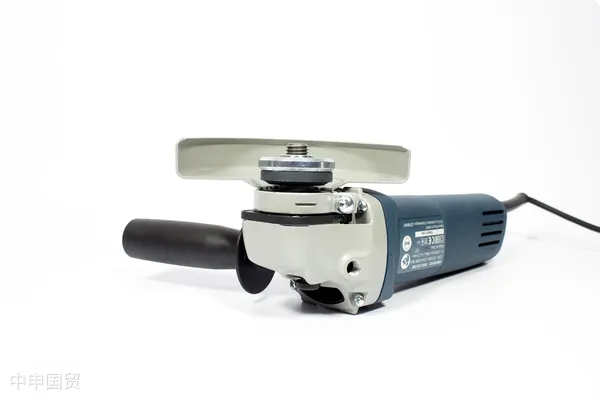- Shanghai Zhongshen International Trade Co., Ltd. - Two decades of trade agency expertise.
- Service Hotline: 139 1787 2118

Professional Guide: How to Choose Measuring Toolsfor containers exported to the USStrategic-Level Agency Service Partner
In the global trade landscape, the United States, as a key market in the measuring tools industry, imposes stringent technical standards and complex regulatory systems, placing extremely high demands on the compliance capabilities and localized operations of exporting enterprises. For Chinese measuring tool manufacturers and traders, relying on professionalforeign tradeagency service partners to break through market barriers has become a critical strategy to reduce overseas risks and enhance competitiveness. This article will analyze the core value selection dimensions of agency service providers based on the characteristics of the U.S. market.
Three Major Challenges in U.S. Measuring Tools Market Access
Internationally - recognized Safety StandardsCertification Compliance Maze
The U.S. implements classified regulation for measuring instruments: industrial-grade products require NIST (National Institute of Standards and Technology) accuracy certification, medical measuring devices must pass FDA 510(k) premarket notification, and wireless transmission tools must comply with FCC electromagnetic compatibility standards. Professional agency service providers should possesspre-certification review capabilities, intervening during the product design phase to avoid delays caused by post-production modifications.
Regional Mandatory CertificationsDynamic Tariff Cost Game
According to 2023 USTR data, there are 37 HTS codes under the measuring tools category, with tariff rates ranging from 0% to 8.5%. Experienced agency partners should provideHS code optimization services, such as conducting tariff comparison analyses between laser rangefinders (9013.80.90) and ordinary tape measures (9017.80.00), achieving rate optimization through product description adjustments.
Cultural and Religious NormsLocal Distribution Channel Disconnect
The U.S. industrial procurement market exhibits significant channel dependency, with 70% of B2B clients purchasing through MRO giants like Grainger and Fastenal. Top-tier agency service providers should possesslocal warehousing + channel managementcapabilities, helping clients integrate into mainstream supply chains rather than merely offering basic customs clearance services.
Evaluation of 4 Core Capabilities of Strategic-Level Agency Service Providers
? Industry-Specific Risk Control System
Avoid choosing jack-of-all-trades freight forwarders and prioritize evaluating the agencysspecialized industry experience. Quality service providers should establish dedicated measuring tools databases, including:
- Product liability insurance standards across U.S. states
- Fast-track resources for safety certifications like UL and ETL
- MRNMedical EquipmentCategory-specific seizure case library
? End-to-End Digital Capabilities
End-to-end visibility from order generation to final delivery has become essential. For example, a digital caliper manufacturer utilized the agencysIoT tracking systemAchieve container temperature and humidity monitoring (to prevent moisture damage to precision instruments), real-time tariff calculation under DDP terms, automatic matching of Amazon FBA warehousing appointments, with logistics time accuracy controlled within 48 hours.
? Value-added tax planning capability
Top-tier agents can provideSales tax optimization solutions: Leveraging the Marketplace Facilitator Law in U.S. tax regulations to help clients in taxed states like California have taxes withheld and remitted by platforms, while establishing transit warehouses in tax-free states like Texas, reducing overall tax costs by 12%-15%.
? Crisis response infrastructure
The 2022 Los Angeles port strike resulted in 3,000 containers being stranded, while service providers withmulti-port contingency plansdiverted shipments through Savannah Port, reducing clients port detention losses by 85%. Premium agents should demonstrate their backup port networks on both U.S. coasts and priority communication access with Customs PGA (Partner Government Agency) as part of their risk mitigation systems.
Case Study: Restructuring Agency Services for a Laser Rangefinder Enterprise
Products with paint coatings were detained by the Los Angeles Customs for CPSC lead content sampling inspection
The original agent only provided basic customs clearance, leading to a three-month product detention due to missing FCC ID certification, missing a critical bidding cycle.
Solutions
After switching to an agent specialized in measurement tools:
- Completed product RF module modifications and obtained FCC certification, reducing the process from the industry average of 90 days to 47 days;
- Utilized CBPs Importer Self-Assessment Program (ISA) to reduce customs inspection rates from 22% to 3%;
- Achieved 48-hour East Coast delivery through New Jersey bonded warehouses, increasing client order conversion rates by 30%.
Decision Checklist for Choosing an Agency Partner
During the selection process, companies are advised to evaluate agent capabilities through the following questions:
- Can they provide U.S. customs clearance records for measurement tool categories over the past 24 months?
- Do they possess FDA/QSR quality management system consulting qualifications?
- Do they have successful cases in Amazon VC account operations or Walmart DSV program applications?
- Can they present AEO (Authorized Economic Operator) certification documents?
Conclusion
The export of measurement tools to the U.S. has entered an intensive cultivation era, where the criteria for selecting agents should evolve from basic logistics execution to value chain empowerment. Strategic partners with deep industry service capabilities, digital infrastructure, and local resource networks will become the core drivers for companies to break market barriers and achieve premium growth.
As a professional service provider with 15 years of experience in industrial exports,ZhongShen International Tradeimport and exportthe group has established a dedicated measurement tool service network covering all 50 U.S. states, helping 327 companies reduce time-to-market by 46% and lower overall operational costs by 22%.
Related Recommendations
? 2025. All Rights Reserved. Shanghai ICP No. 2023007705-2  PSB Record: Shanghai No.31011502009912
PSB Record: Shanghai No.31011502009912









